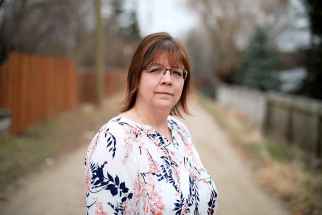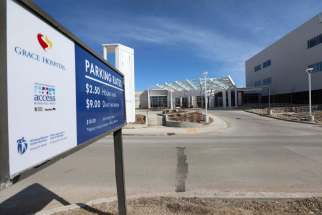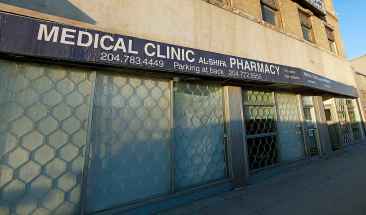A parent’s pain, a demand for political action A desperate mother pleads for someone — anyone — in government to save her meth-addicted son's life
Read this article for free:
or
Already have an account? Log in here »
To continue reading, please subscribe:
Monthly Digital Subscription
$0 for the first 4 weeks*
- Enjoy unlimited reading on winnipegfreepress.com
- Read the E-Edition, our digital replica newspaper
- Access News Break, our award-winning app
- Play interactive puzzles
*No charge for 4 weeks then price increases to the regular rate of $19.00 plus GST every four weeks. Offer available to new and qualified returning subscribers only. Cancel any time.
Monthly Digital Subscription
$4.75/week*
- Enjoy unlimited reading on winnipegfreepress.com
- Read the E-Edition, our digital replica newspaper
- Access News Break, our award-winning app
- Play interactive puzzles
*Billed as $19 plus GST every four weeks. Cancel any time.
To continue reading, please subscribe:
Add Free Press access to your Brandon Sun subscription for only an additional
$1 for the first 4 weeks*
*Your next subscription payment will increase by $1.00 and you will be charged $16.99 plus GST for four weeks. After four weeks, your payment will increase to $23.99 plus GST every four weeks.
Read unlimited articles for free today:
or
Already have an account? Log in here »
Hey there, time traveller!
This article was published 20/12/2018 (2546 days ago), so information in it may no longer be current.
While her son has grappled with drug addiction for the past 11 years, Kim Longstreet has taken on a second job: trying to save his life.
Begging politicians of all stripes to help is a big part of it.
The Brandon mom organized a town hall before October’s municipal election. She created the non-profit RJ Streetz Foundation last January to support substance abusers in the western Manitoba region.
And she spends evenings patrolling with Brandon’s Bear Clan.
All the while, she and her son have been struggling to stay afloat in their own storm.
“My son and I talk about our journey a lot together. We’re still close. He’s done things he’s not proud of and I don’t hold that against him because I understand that’s not my son," she says. "My son is somebody that I knew up until this drug overtook him."
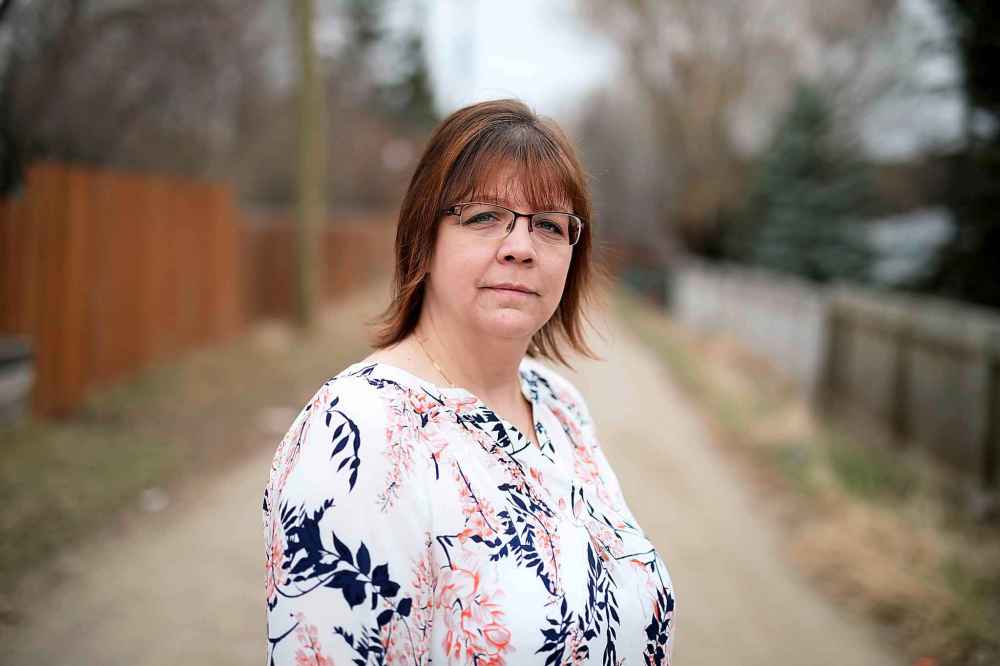
In the sixth instalment of a seven-part series on the resurgence of methamphetamine in Manitoba, the Free Press looks at how governments have responded.
While Longstreet was grateful to hear about a tri-level government task force struck this week to tackle illicit drugs, she’ll have to wait another six months for the group’s recommendations.
Longstreet’s son overdosed on ecstasy in 2012, then two years later, things “went really sideways” when he got hooked on meth.
“People who use heroin and cocaine, they can have some semblance of life and order,” she says. “But not with meth.”
The single mom says her son has been in and out of detox and treatment facilities. They often have to drive 2 1/2 hours to Winnipeg, since there aren’t enough spots available in Brandon.
Each time he relapses, she takes a day off work to mourn. Bottling up her emotions is counter-productive.
“I have to be able to internalize it and come to terms with it and just not rage like I want to…. So I cry, and I cry hard. Those really ugly, ugly cries where you’re sitting in the living room on the floor, a box of Kleenex beside you and just letting it out.”
The devastating cycle began again Nov. 20, the day after her 31-year-old son returned from a month in a Winnipeg rehab facility.
Fed up, Longstreet logged onto her computer two days later and emailed every relevant member of government she could think of: mayor, premier, MP, health minister, area MLAs, opposition politicians.
She urged them to try harder: “I’m a mom trying to save her only child. And I have to be honest with you, the hope for that happening is literally running on fumes right now.”
The MLAs (NDP Leader Wab Kinew and Liberal Leader Dougald Lamont), Brandon Mayor Rick Chrest and Brandon-Souris MP Larry Maguire all responded within a couple of days.
She didn’t hear from anyone in the provincial government until Dec. 6. An assistant deputy minister emailed, saying she can “very much empathize” with Longstreet’s frustrations and outlines steps the province is taking to improve care.
‘I wish it was over one way or the other’: Listen to Kim Longstreet address Parliament’s health committee studying meth
Longstreet says she doesn’t see Manitoba’s meth crisis as a partisan issue. She and countless others just want help for their loved ones and don’t care where it comes from.
What she really wants to hear is officials talking about more long-term treatment options — not just for her son, but also the nearly 300 others who have contacted the Addictions Foundation of Manitoba about their struggles since the beginning of the fiscal year in April.
Her son has been through many short-term programs, adding up, she said, to more than 200 days in ultimately unsuccessful treatment. She wonders if her son wouldn’t be much further ahead if he’d been in a single, long-term program, perhaps one that was those 200-plus days in duration.
“It’s just a cycle that is vicious and it’s unfair. It’s unfair to people who are wanting to rehabilitate,” she says. “You don’t release them after 21 days and say, ‘Well you’ve run out of days.’ You put your foot on the gas and you get them over the finish line.”
Earlier this month, Ottawa and Manitoba signed a bi-lateral agreement to spend $8.4 million on funding for an as-yet-to-be-determined number of flexible-length withdrawal management and recovery beds, along with mobile clinical services for Winnipeg and Brandon.
The province installed five Rapid Access to Addictions Medicine clinics, two in Winnipeg and one each in Brandon, Thompson and Selkirk. It also added 18 treatment beds at Health Sciences Centre and the AFM’s Portage Avenue location and became the first jurisdiction in Canada to equip paramedics with olanzapine, a drug that can help curb the effects of meth-related psychosis.
The government also issued a request for proposals (due Jan. 15) seeking one or more providers to boost the number of residential treatment beds in the province by 15. The number of beds has stayed relatively stable since 2016, when the Tories took power.
There are currently 80 publicly funded detox beds, 317 primary residential-treatment beds, and 198 second-stage treatment or supportive-housing beds; 10 detox and 14 residential treatment spots are reserved for youths.
Health Minister Cameron Friesen says the government’s strategy is to “cascade out” announcements about addictions services when they’re ready rather than wait weeks or months to reveal a long-term plan.
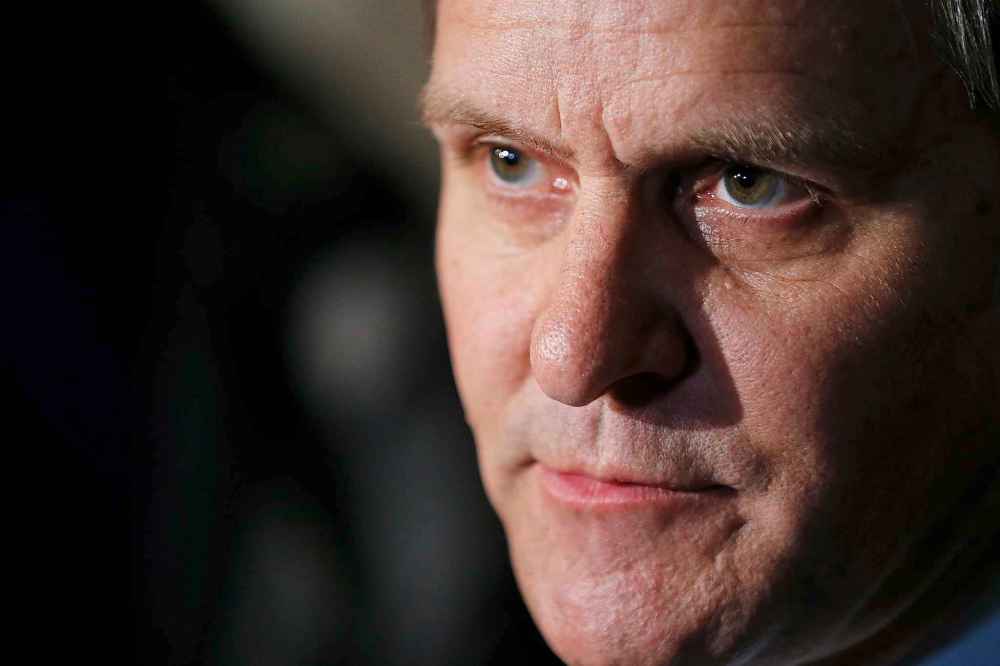
“We’re clearly acting," he says in an interview. "We’re not waiting for a magic day and then say, ‘All right, we’ve now put together 35 things that will all work.’”
Friesen makes clear he won’t be able to “solve the meth challenge” in the Health Department alone; other government departments will have to be involved as well, he says.
Meth seems to have affected every community in Manitoba, including inside Friesen’s Morden-Winkler constituency. Although it shows no signs of slowing down, the health minister hasn’t lost hope.
“I don’t believe that this is insurmountable, but I share the alarm of all Manitobans,” he says. “This is not good for our communities, for our neighbours and friends… it cuts a swath of destruction that is horrific across our province.”
Manitoba First Nations have been among the hardest hit, including St. Theresa Point where Liberal MLA Judy Klassen (Keewatinook) is from.
When wildfires ravaged the Island Lake area in the summer of 2017, an estimated 3,700 evacuees were forced to flee, mostly to Winnipeg, where they found dealers eager to find new clients, Klassen says.
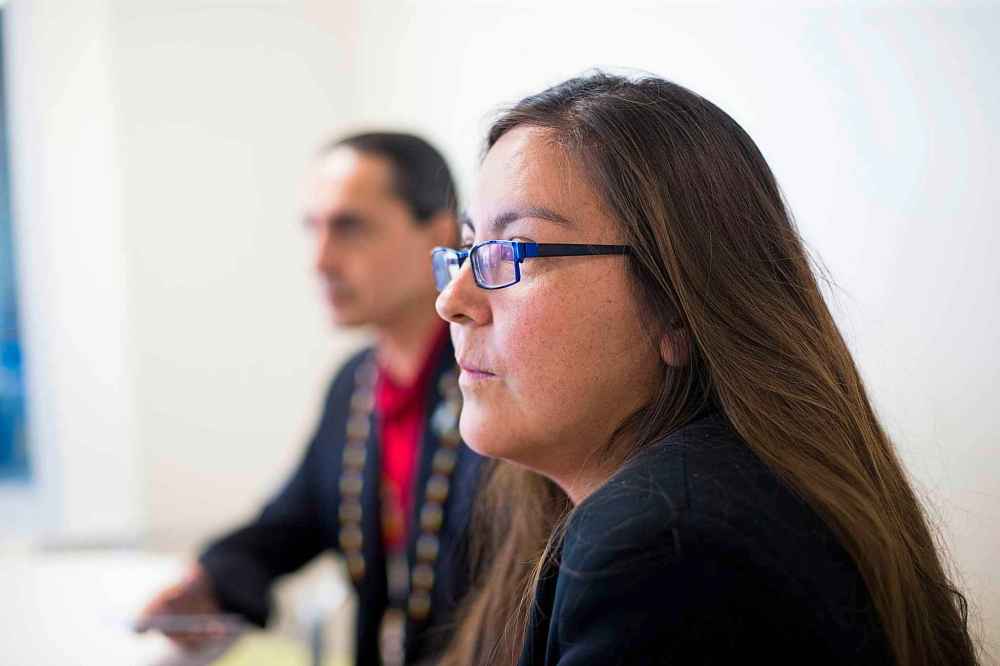
“I’m sure (meth) was (up north) on a small scale previous to the wildfires, but because of the wildfires, it just exploded,” the MLA says.
The waiting list for public treatment options “is forever,” she says, “and by the time they finally get in, they’re really far gone. So when they do come out, it’s just shampoo, rinse and repeat to try and get them back in there."
An AFM spokeswoman provided data Tuesday that outlines the longest possible waits for residential treatment: 46 days for men, 255 for women and four for youths.
Many users don’t need live-in treatment however, she said, and do well with community-based programming.
Meth in 2018
Jan. 12 – The provincial NDP calls for a safe-injection site in Winnipeg to prevent overdoses and the spread of blood-borne diseases among intravenous drug users.
Feb. 8 – Winnipeg Police Service Chief Danny Smyth warns the city has a meth problem. Cops seized more than 5.8 kilograms of meth in January (an estimated street value of $580,000), about half the amount seized in all of 2017.
Jan. 12 – The provincial NDP calls for a safe-injection site in Winnipeg to prevent overdoses and the spread of blood-borne diseases among intravenous drug users.
Feb. 8 – Winnipeg Police Service Chief Danny Smyth warns the city has a meth problem. Cops seized more than 5.8 kilograms of meth in January (an estimated street value of $580,000), about half the amount seized in all of 2017.
April 4 – Liberal MLA Judy Klassen says young people who fled wildfires in the Island Lake region in summer 2017 became addicted to meth after being evacuated to Winnipeg.
May 14 — The Manitoba government mistakenly releases a draft version of a consultant’s report outlining plans for a mental health and addictions strategy. The Virgo report makes 130 recommendations, including installing a safe-injection site in Winnipeg — a suggestion later removed from the final report. Opposition critics cry foul, saying the Tories interfered with the report’s contents.
May 22 – About 40 people from the Island Lake region in northern Manitoba travel to Ottawa to ask for federal help beating back the meth crisis on reserves.
July 2 – Sixty-nine per cent of Winnipeggers support a safe injection site for intravenous drug users, according to a poll conducted on behalf of the Free Press by Probe Research.
July 18 — Police Chief Smyth says the city’s meth problem is driving up crime rates and “this is a community crisis that requires a community response.”
Aug. 9 – The Winnipeg Regional Health Authority warns about an increasing number of syphilis cases, but can’t confirm the root cause. Twenty per cent of new cases are found in people who are homeless or inadequately housed and 20 per cent are crystal meth users.
Sept. 5 – The province opens in Winnipeg the first of five planned Rapid Access to Addictions Medicine clinics for Manitoba, while city councillors call for a crystal meth task force.
Sept. 9 – Liberal MP Doug Eyolfson calls for federal hearings on the meth situation in the Prairies, which later start in November.
Sept. 21 — Manitoba Children and Youth Advocate Daphne Penrose releases a statement of concern alleging the province is dragging its heels, not helping youth with meth addictions, while “stuck in an ideological debate” about harm-reduction approaches.
Oct. 9 – A Probe Research poll conducted on behalf of the Free Press and CTV Winnipeg finds roughly eight out of 10 residents feel the meth problem in Winnipeg makes them feel less safe.
Oct. 30 – Manitoba announces it’s applying for millions in federal money through Ottawa’s one-time Emergency Treatment Fund to help people with meth addictions.
Nov. 1 – Police forces from Vancouver to Winnipeg announce the results of “Project Riverbank.” After a 10-month investigation, they seized an estimated $2.7 million in high-end vehicles, weapons and drugs, including crystal meth, and made 10 arrests.
Nov. 13 – Re-zoning and conditional use applications are approved for the Bruce Oake Recovery Centre by the Assiniboia Community Committee. The $14-million, 50-bed, long-term recovery centre is being spearheaded by the Oake family.
Nov. 26 – Manitoba becomes the first province to allow paramedics to administer Olanzapine, an anti-psychotic drug that can help curb the effects of meth-related psychosis.
Dec. 7 – Ottawa and Manitoba sign a bi-lateral agreement to spend $8.4 million on flexible-length withdrawal management and recovery beds, plus mobile clinical services to be located in Winnipeg and Brandon.
Dec. 11 – The federal government’s standing committee on health hosts a third hearing on meth, where Mayor Brian Bowman, police Chief Smyth and Winnipeg Fire Paramedic Service Chief John Lane testify. WRHA documents show a link between intravenous drug use and recent outbreaks of syphilis, hepatitis B and C.
Dec. 18 – Bowman, Manitoba Health Minister Cameron Friesen and Liberal MP Robert-Falcon Ouellette announce a joint task force where all three levels of government will tackle the spread of illicit drugs. They plan to produce a report by June 2019.
Members of the four Island Lake-area communities travelled 3,000 kilometres to Ottawa in May asking for federal help getting rid of meth. Children began making their own warning signs, pasting them up around St. Theresa Point.
“Meth Kills” and “Plz do not bring meth in community!” were among the slogans.
It’s unclear how much the province has spent on any meth-related public-education campaigns of its own. After multiple requests from the Free Press for a dollar figure, a government spokesperson says Thursday the amount is "difficult to quantify."
It did, however, announce in October it spent $350,000 on a public-health messaging campaign about the possible risks of using cannabis, which was legalized on Oct. 17.
Kinew says the delayed response from the province is "telling."
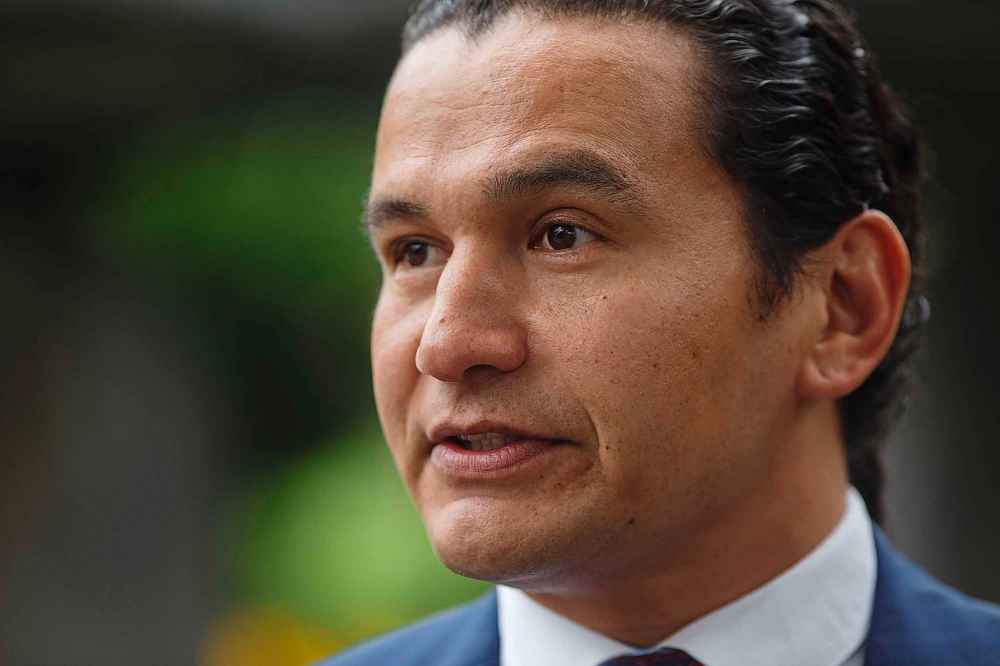
"So far we’ve seen a bunch of ineffective ads warning people about cannabis, but we haven’t seen much in terms of public outreach to help people understand what meth can do," he says.
To determine whether 2018’s unfolding crisis had reached the premier’s office, the Free Press sought any internal records about methamphetamine presented to the premier and health minister through freedom of information requests.
Only three advisory notes about meth turned up between Jan. 1 and Aug. 30, all addressed to the health minister. None appeared for the premier. A spokesperson for Pallister said records presented to the premier may not have necessarily come back in a FIPPA search, but he was briefed on the subject on multiple occasions.
The NDP leader has personal connections to the epidemic, friends and family members who are addicted. He’s pushed for culturally competent care from his seat on the Opposition bench.
"A lot of the people that are struggling with addictions in Manitoba are Indigenous and what is the nature of the trauma they’re dealing with? Well, if you’re from a family like mine, and speaking as someone who’s battled addiction in their own life, it’s because of failed government policies of the past," he says.
"Going back through the Indian Act and residential schools, many families dealing with the ’60s Scoop and the (Child and Family Services) system.”
In addition to delivering mental-health services and providing jobs, among other interventions, Kinew is also calling for a safe-injection site in Winnipeg.
Premier Brian Pallister says he, personally, doesn’t like the idea, but the province will weigh all available options to deal with the meth problem, listening to voices from city hall and the federal government.
"My opinion was they’re a magnet for drug dealers and they’re dangerous in many respects, and there are many other initiatives we’ve taken and will be taking to address this issue because it is a serious concern," Pallister says.
Doug Eyolfson, the Liberal MP for Charleswood-St. James-Assiniboia-Headingley, says supervised consumption sites aren’t the only solution, but Winnipeg should have one as part of a harm-reduction strategy. The evidence is clear, he says, that such facilities can help save lives and stop the spread of blood-borne illnesses such as syphilis, hepatitis B and C.
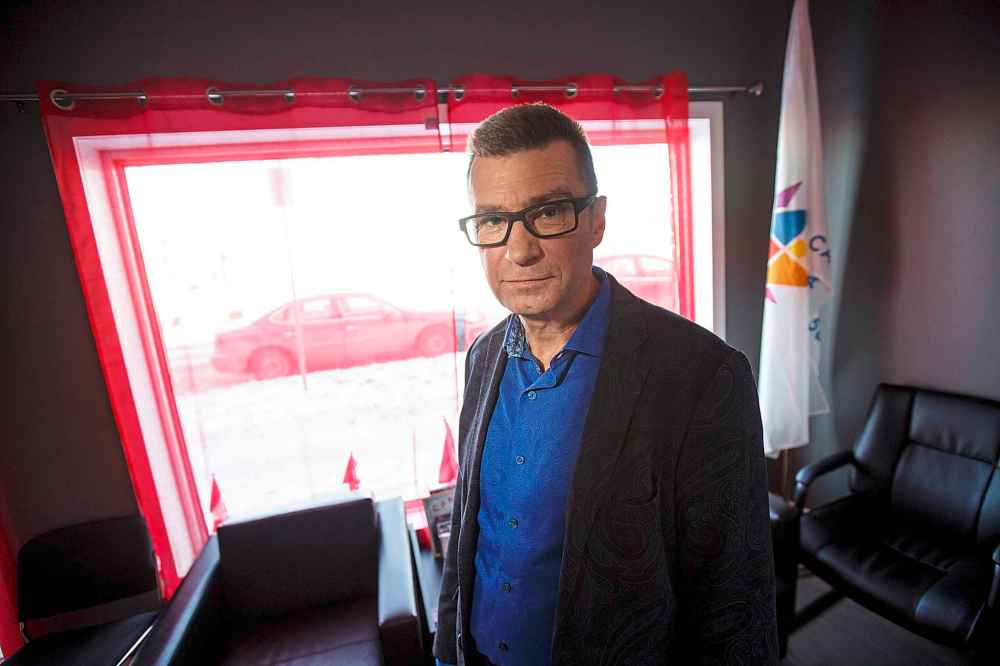
In documents revealed by the provincial NDP last week, the Winnipeg Regional Health Authority warned the region is experiencing outbreaks of those diseases from rising levels of intravenous drug use.
“I think it’s a matter of education of not just the public, but of those in the political sphere as to what these centres accomplish," says Eyolfson, a former emergency room doctor.
"People don’t realize when they describe these things as a waste of money, they don’t appreciate how expensive these blood-borne illnesses are. If one person contracts HIV, it’s going to cost the health-care system about $1 million of treatment over the course of that person’s lifetime."
One case of hepatitis C can also cost taxpayers more than $40,000, the WRHA documents show. And the cost of a clean needle? Nine cents.
In the fall, Eyolfson says he spoke to the federal health minister and the prime minister about the urgent need to address meth’s spread in the Prairies. Ottawa’s standing committee on health called for five hearings on the issue, starting in November. Many from Manitoba have testified, including Winnipeg Mayor Brian Bowman.
Eyolfson compares the meth situation to what happened with crack cocaine in the 1980s and ’90s, stressing the drug could wreak havoc all over North America.
"If we don’t get a handle on this, it very well could," he says. "I’m worried about this, because as I said, in three years, a drug that was not that big an issue is a tremendous issue right now."
Bowman sat down with the Free Press a day after he appeared — via video — before the Commons committee to discuss the impact meth has had on Winnipeg. He used the word "heartbreaking" four times and called on the federal government to do more.
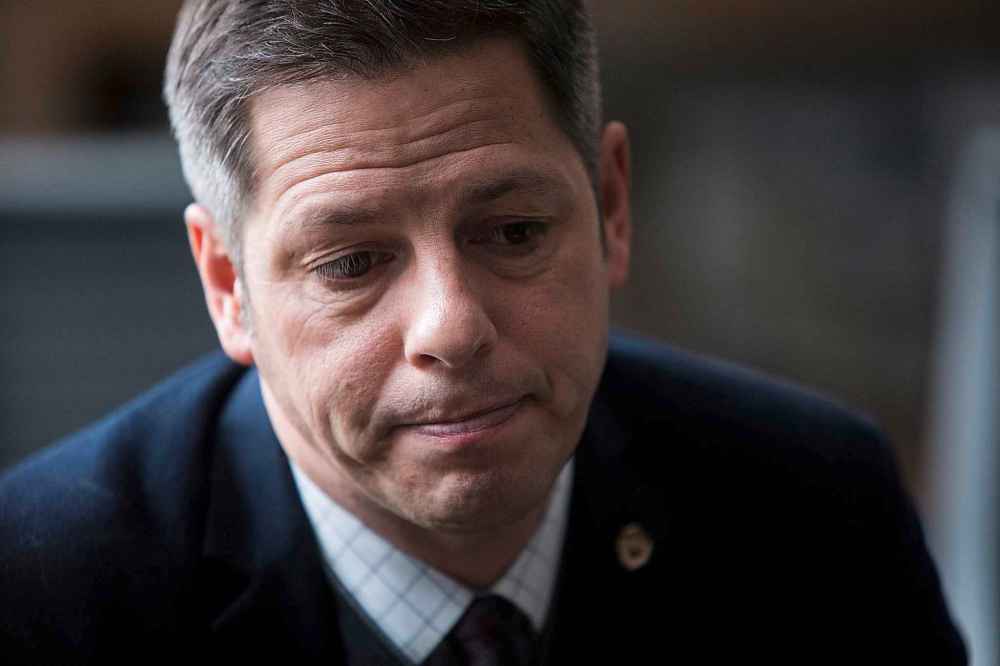
The mayor wants to see a national strategy to combat illicit drugs. He wants Ottawa to strengthen border security, which could prevent meth from being shipped in by Mexican cartels, as police allege is happening. He wants more funding to address some of the root causes and results of meth use: mental-health issues, homelessness and poverty.
Asked if getting rid of the drug will be his No. 1 priority for 2019, he takes an emotional turn. Bowman, knows there are other items on his agenda —infrastructure and transit, for example. His eyes become moist.
"The community and the people that need help, they need us to do our jobs and be effective. And I think about the people that I’ve been face to face with that are using and have used, and I also think about the parents out there that have children like mine that they want to protect," he said.
No family, no demographic, no neighbourhood is protected, Bowman said, adding "it’s just not one of those issues that if you make more money or you live in a certain area of the city, you’re immune from mental health (issues) and addictions."
Bowman called it a "crisis," as have Eyolfson, Kinew and Klassen. Friesen did not, saying he doesn’t "get hung up on terminology."
"Crisis? Not crisis? It’s a very significant issue. It requires urgency, it requires the full attention of government and I would want Manitobans to know that this is what they’re getting from this government," he said.
Kim Longstreet testified at the same Ottawa hearing as Bowman on Dec. 11, also via a video connection, and made a startling admission.
“After 11 years of coping with my son’s substance use disorder, I can honestly say that I wish it was over, one way or another. Every time I hear a siren or the phone rings at odd hours, I wonder if this is the call," she told the committee.
"To some, this will make me sound like a terrible parent. But sometimes I do imagine that that call is ‘the’ call, that my son will finally have peace from the war that our society appears to be losing."
In an interview, Longstreet says she hasn’t met Pallister yet. But she knows what she’ll say if she does.
"’If you haven’t had this affect you in a really direct way, you can remain callous about it. You can have a thick skin and not be vulnerable.’ And I think that would be my message to all the politicians, not just our premier: ‘You need to get vulnerable,’" she says.
"’You all need to put aside your partisan ways and you need to stop looking at my son and other people who are struggling… as political pawns," she continues.
"Stop looking at this situation that we have as dollars and cents and actually use what you have, the resources, to do something right.’"
jessica.botelho@freepress.mb.ca
Twitter: @_jessbu
Meth before 2018
March 3, 2000 – The Winnipeg Police Service reported seizing its largest quantity of meth — four ounces worth $30,000 — from a man at a bus depot. The drug was becoming increasingly popular among “the young rave crowd,” according to a Free Press report. “It’s not a big problem, but we certainly are seeing it more and more. It’s a trend we’re very concerned about,” Insp. Gary Walker said at the time. One of police’s first meth lab busts in Manitoba followed a few months later.
September 2005 – A proposal to force treatment on addicts who were sentenced to prison for crystal-meth-related crimes was put forward by MPs. Then-Conservative justice critic Vic Toews said frontline workers in Vancouver implored him to push the federal government to change the Criminal Code to allow for mandatory treatment.
Oct. 27, 2005 – The NDP government under premier Gary Doer announced a provincial “crystal meth strategy” and task force aimed at cracking down on supply and production of the synthetic stimulant with tight controls on ingredients such as cold medicines and farming chemicals. The strategy also promised to improve treatment programs.
Nov. 9, 2005 – The provincial government launched a $260,000 public awareness campaign to prevent an outbreak of crystal meth in Manitoba. It featured brochures, TV, radio and print ads aimed at youth, parents and community workers.
Dec. 10, 2005: The Free Press published a three-part series (“Mainline to Meth”) examining the proliferation of meth labs in Canada and lax controls on the bulk sales of drugstore products containing ephedrine, which is used to produce meth. “Police have described meth use as the biggest law-enforcement concern in Western Canada today,” the first front-page story read.
March 2006: The provincial government amended the Safer Communities and Neighbourhoods Act to give provincial investigators power to evict people from their homes if they were harbouring ingredients required to set up a meth lab.
Jan. 26, 2007: The Free Press reported police and prosecutors had not made any use of the updated legislation to crack down on meth labs.
Aug. 25, 2008: The province planned a drug prevention program aimed at youth to be launched later that year featuring a graphic TV ad that equated meth addict to torture.
Jan. 12, 2011: The Winnipeg Police Service launched an education program called Meth Watch to raise awareness about the dangers of meth labs.
July 2011: Crystal meth was second to cocaine as the drug of choice for participants in Winnipeg’s Drug Treatment Court, according to a Free Press report.
April 2013: After a spike in hospital visits from meth users, the Winnipeg Police Service issued a public warning about a “bad batch” of meth. The warning was considered unusual at the time.
September 2016: The Winnipeg Regional Health Authority’s Street Connections program reported a surge in meth use among youth, a signal of what is now commonly called Winnipeg’s meth crisis, although media attention tended to focus on fentanyl and other opioids.
May 2017: The chief of Sandy Bay First Nation warned of a meth problem there and proposed banishing drug dealers from the community.
July 2017: The Winnipeg Police Service publicly pointed to the city’s meth trade as a major driver of crime after allegedly meth-related homicides in the city. At the time, WPS spokesman Rob Carver said it was a young person’s drug. “It’s not a drug addiction that tends to have a long lifespan. It kills people, so we don’t have a lot of old meth addicts.”
Aug. 27, 2017: Winnipeg Police Service spokesman Jay Murray told the Free Press meth addiction “has gripped the city.”
Sept. 25, 2017: Winnipeg Police Service Chief Danny Smyth spoke publicly for the first time about meth-fuelled violence and “wild behaviour” the drug causes after two police-involved shootings.
— Katie May
History
Updated on Thursday, December 20, 2018 8:20 PM CST: Fixes multiple errors at request of writer.
Updated on Friday, December 21, 2018 7:34 AM CST: Adds pre-2018 meth timeline








